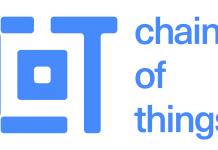JPMorgan on Friday revealed its own blockchain technology prototype at the technical steering committee meeting of the open source Hyperledger Project, according to a CoinDesk scoop.
JPMorgan executive director David Voell introduced the “Juno Digital Cryptoledger” and one of the developers of the prototype, financial technology engineer Will Martino.
In his introduction, Voell placed emphasis on Juno’s lower latency and higher transaction throughput.
“It is very well suited for high volume use cases. A lot of the existing technology we’ve seen with blockchain is not so good at higher volume transactions. Some of the use cases we are looking at are in the area of 200, 300, 400, 500 transactions per second.”
Martino gave a presentation on Juno as an alternative to existing smart contract blockchain technologies like Ethereum, noting that project started in September 2015 after testing other blockchain technologies.
Juno provides a platform for private network applications and removes the need for proof-of-work and proof-of-stake functions typical in current blockchains. Juno accomplishes this by using a variant of the Raft consensus protocol with Byzantine Fault Tolerance (BFT), called Tangaroa, and a smart contracts language developed for it, called Hopper.
According to its Github page, Juno can achieve significantly lower latency than traditional Blockchain-based models.
“Running the demo locally, one can expect latencies of ~20ms and throughput in excess of 1000 transactions a second.”
In his presentation to Hyperledger, Martino indicated that an un-optimized version of Juno running four nodes on a MacBook Pro generated throughput of 500 transactions per second and a latency of ~2ms. The development team believes it can achieve 2-3 times performance with basic optimizations.
To put this performance in perspective, the Bitcoin network can handle 7 transactions per second, while Visa’s network handles an average of 2000 transactions per second. Even if it can handle just 500 transactions per second, Juno is much more suitable for most mainstream financial applications than the two most prominent blockchains, Bitcoin and Ethereum.
Juno however is not a finished product, as Voell noted in the introduction to Hyperledger:
“It is not finished yet. It is still a work in process. We have been having some very good results from our testing.”
JPMorgan is a member of R3’s consortium of 45 member banks, called the R3 Global Collaborative Lab, and recently took part in testing distributed ledger technologies developed by Chain, Eris Industries, Ethereum, IBM and Intel.








